Enderturtle
Guest
I have a 16" deep 40 gallon breeder with two Kessil 350W's on top. The Kessils are attached using a gooseneck allowing them to be 8 inches from the top of the tank. Total height from the kessil to the bottom of the tank is 24 inches Tank is only 5 months old but fully cycled. Has been fallow for 1.25 months for ich treatment.
Kessil settings are 40% Blue and 15% White light for 8 hours a day.
This torch coral I got about a month ago has decreased significantly in color. It's tentacles are not green anymore but the mouth is still green. He is sitting at the bottom of the tank. Tentacles are shorter than usual. This coral came from a shallow frag tank sitting under Radian Gen 3 lights (almost no white light)
My Hammer coral was doing awesome for a while and then nose dived. I had him half way up the tank in full light. He reacted great for about a month and then shrivled to nothing. I put him in the shade and he recovered but not to his original extent. The hammer's tentacles are shaped like a torch now. They use to be hammer shaped and his tentacles do not appear to be fully extended. He is sitting in full light approximately 2 inches off the bottom.
My Red and Green blasto was vibrant red when I got him and is now a dull red. He was on the sandbed and i moved him 2 inches up. He expelled zoxanthelle so I put him in the shade where he's been for the past month and has not regained his vibrant color.
Also my I have Montipora undata and Montipora cap at the highest point in the tank and the undata has browned out, while the capricornus has dulled in color, turning a brownish red. The montis turned to this color during the dip (Revive dip for 10 minutes) and have not recovered. They have been in the tanks for at least 2 months.
Tank Parameters are:
SG: 1.024
pH: 8.0
Calcium: Ranges from 400-450
Alkalinity: Ranges from 8 to 10
Nitrates: Close to 0
Phosphates: Close to 0
Too much light? Not enough light? Calcium and alkalinity swing slightly but within the acceptable ranges.
Overview of Tank
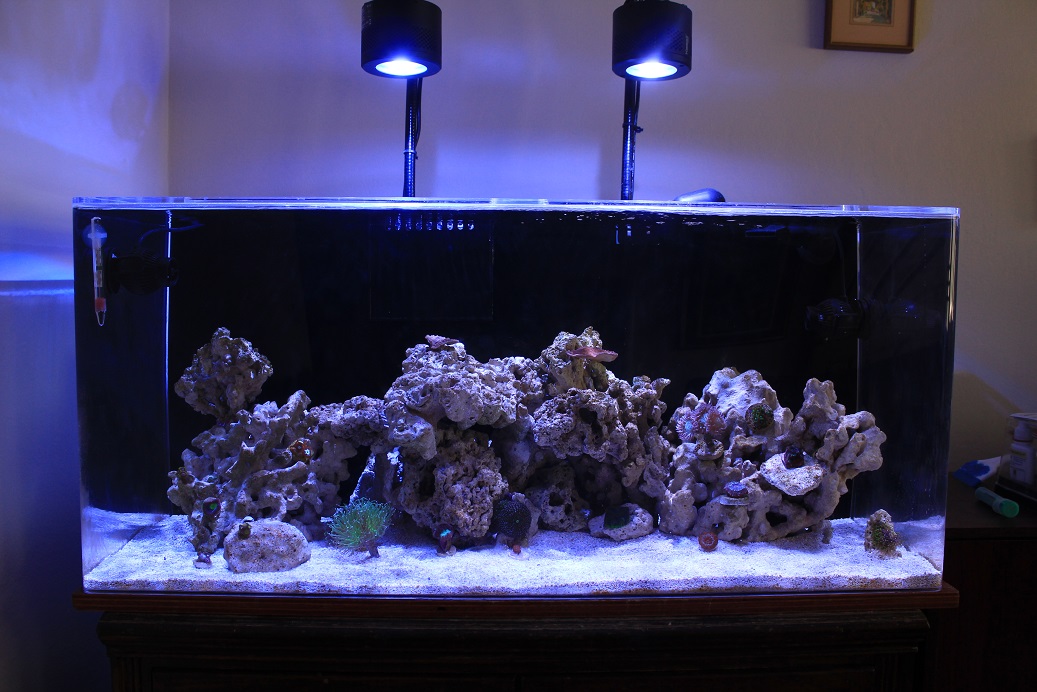
Picture of Torch when I got it.
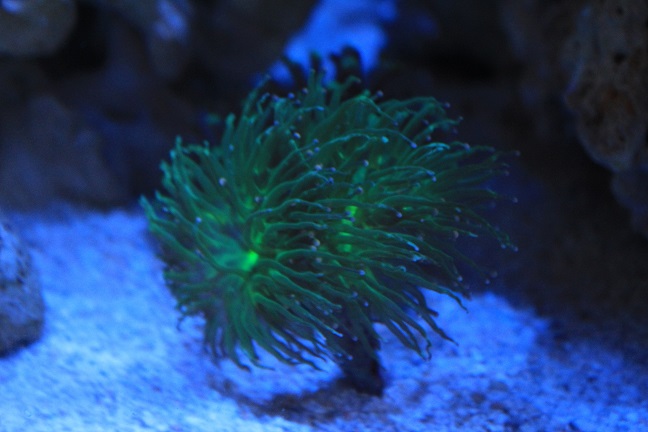
Picture of Torch Now
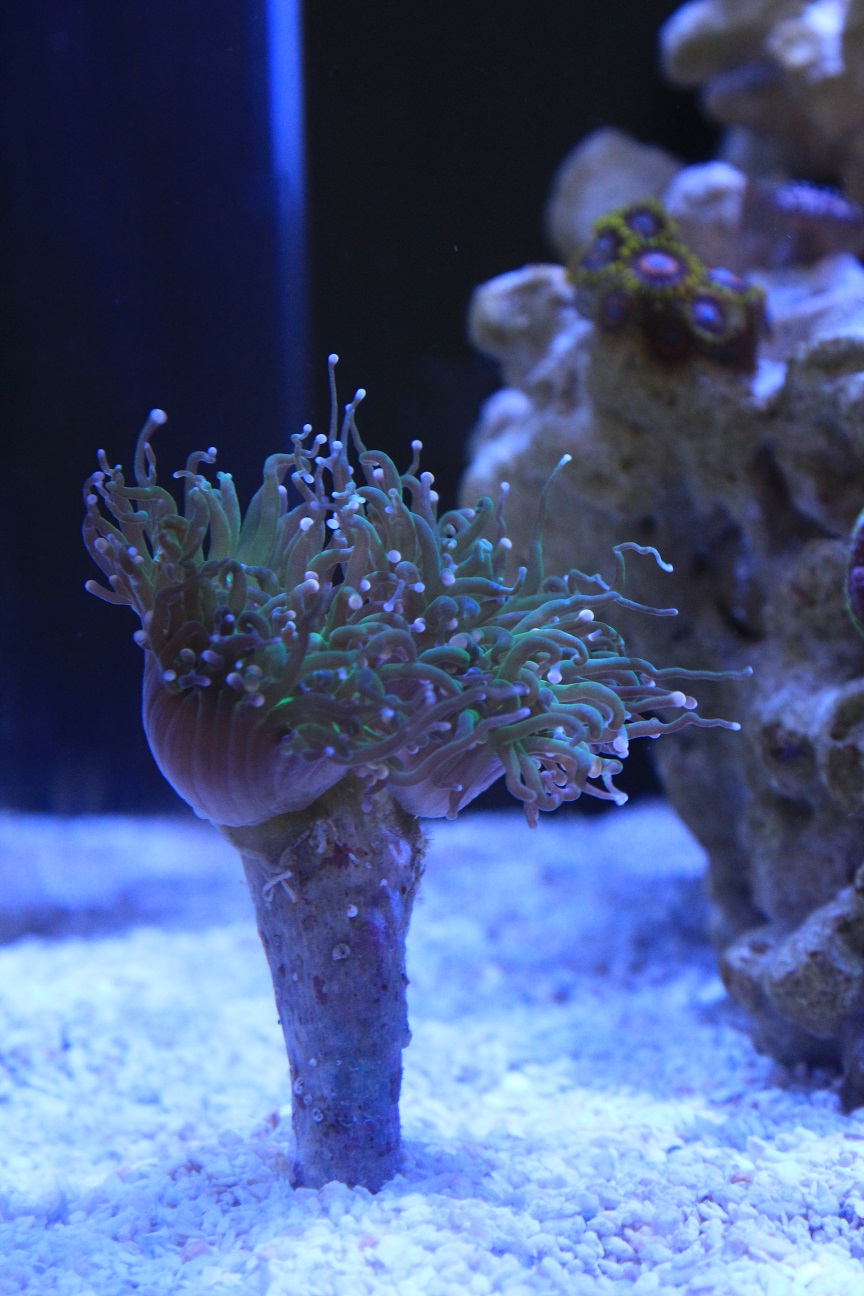 IMG_9233 by buyandsellstuffmike, on Flickr
IMG_9233 by buyandsellstuffmike, on Flickr
Picture of Hammer at Beginning
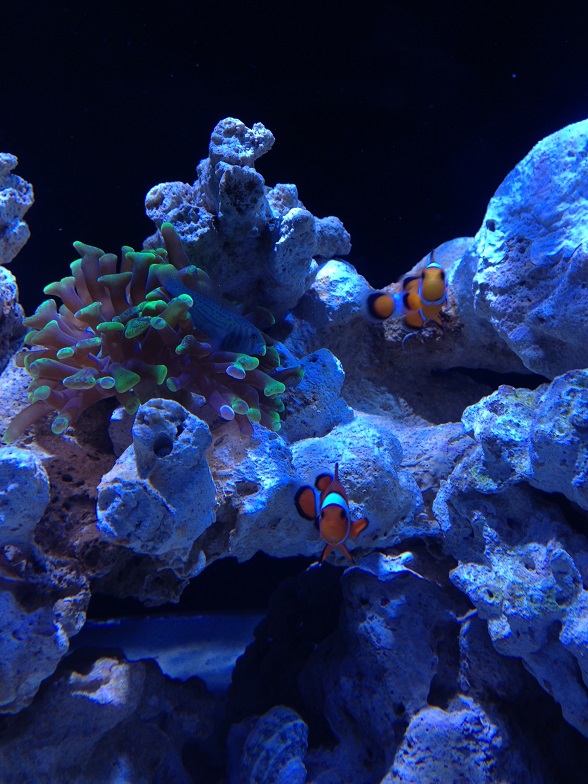
Picture of Hammer Now
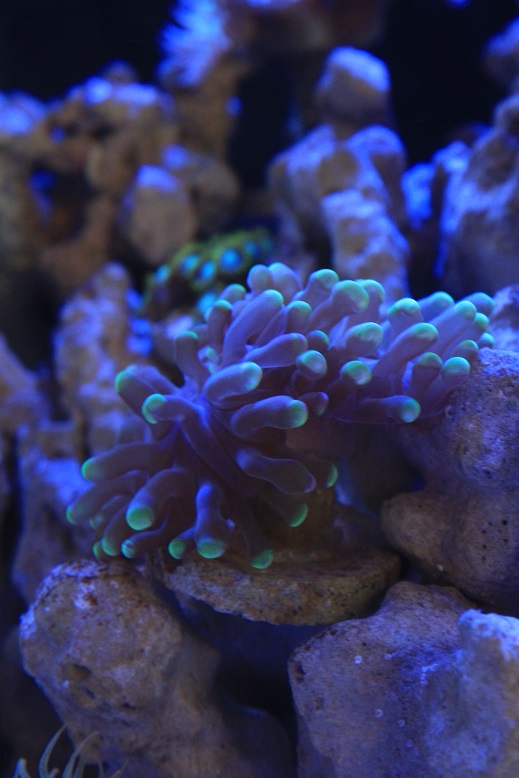
Picture of Red-Green Blastomussa
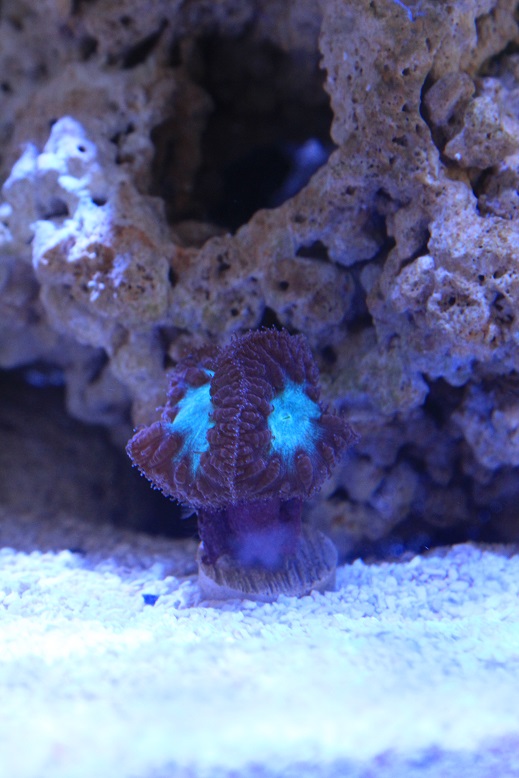
Zoanthids are growing fine. I have a skimmer that keeps my tank very clean. Though I don't think the tank is too clean for coral growth because I have minor hair algae and chaeto growth in my sump.
Kessil settings are 40% Blue and 15% White light for 8 hours a day.
This torch coral I got about a month ago has decreased significantly in color. It's tentacles are not green anymore but the mouth is still green. He is sitting at the bottom of the tank. Tentacles are shorter than usual. This coral came from a shallow frag tank sitting under Radian Gen 3 lights (almost no white light)
My Hammer coral was doing awesome for a while and then nose dived. I had him half way up the tank in full light. He reacted great for about a month and then shrivled to nothing. I put him in the shade and he recovered but not to his original extent. The hammer's tentacles are shaped like a torch now. They use to be hammer shaped and his tentacles do not appear to be fully extended. He is sitting in full light approximately 2 inches off the bottom.
My Red and Green blasto was vibrant red when I got him and is now a dull red. He was on the sandbed and i moved him 2 inches up. He expelled zoxanthelle so I put him in the shade where he's been for the past month and has not regained his vibrant color.
Also my I have Montipora undata and Montipora cap at the highest point in the tank and the undata has browned out, while the capricornus has dulled in color, turning a brownish red. The montis turned to this color during the dip (Revive dip for 10 minutes) and have not recovered. They have been in the tanks for at least 2 months.
Tank Parameters are:
SG: 1.024
pH: 8.0
Calcium: Ranges from 400-450
Alkalinity: Ranges from 8 to 10
Nitrates: Close to 0
Phosphates: Close to 0
Too much light? Not enough light? Calcium and alkalinity swing slightly but within the acceptable ranges.
Overview of Tank

Picture of Torch when I got it.

Picture of Torch Now
 IMG_9233 by buyandsellstuffmike, on Flickr
IMG_9233 by buyandsellstuffmike, on FlickrPicture of Hammer at Beginning

Picture of Hammer Now

Picture of Red-Green Blastomussa

Zoanthids are growing fine. I have a skimmer that keeps my tank very clean. Though I don't think the tank is too clean for coral growth because I have minor hair algae and chaeto growth in my sump.
